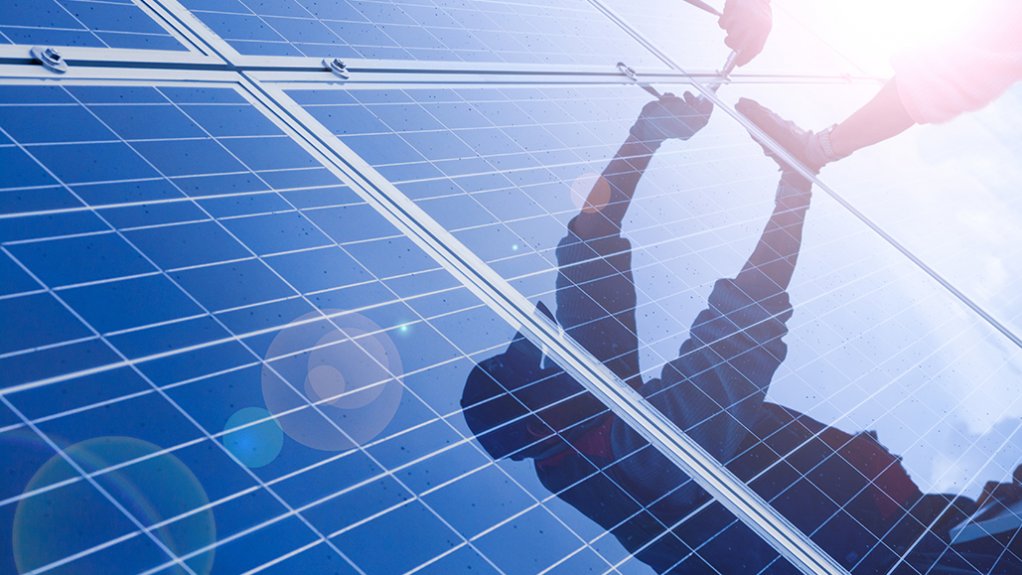Africa not a major player in solar energy – yet
All the critical minerals necessary for all renewable and battery energy technologies are found in Africa, highlighted consultancy and data company Rystad Energy senior partner and head of analysis Per Magnus Nysveen.
He was addressing the Critical Minerals Africa conference, at the Cape Town International Convention Centre on Tuesday. Nysveen defined renewable energy as encompassing geothermal as well as solar and wind power. Batteries were also low carbon energy sources and included both mobile (vehicle) and stationary applications.
While Europe and North America dominated the global production of wind turbines, China had now entered this market and was beginning to catch up. In this, it was being helped by the fact that demand for wind turbines had outstripped the currently available supply, driving prices up sharply (and so rendering a number of offshore wind projects unviable).
But, with regard to batteries, Chinese production was large-scale, both for domestic and international consumption. He reported that, in August, 37% of the cars sold in China had been electric vehicles.
And when it came to the complete range of solar power technology and product manufacturing, “China is extremely dominant”, he observed. To cite only one element that went into the production of a solar panel, the wafers, China was responsible for more than 90% of total global production.
The US had responded to this dominance by adopting protectionist measures against Chinese solar panels and their components. As a result, new solar panels now cost (in cents per Watt terms) 100% more in the US than in China or the European Union (EU). As for the EU, solar panel manufacturing within that bloc was still dependent on subsidies and on China.
The manufacture of solar panels required the production of polysilicon, ingots and wafers, cells, and modules. The manufacture of all these components was now under way in Africa, but scattered across a few countries. It was particularly happening in Nigeria, which was producing polysilicon, ingots and wafers, and modules. South Africa was making cells and modules. Egypt, Algeria and Ghana were assembling modules. But all these countries were using predominantly Chinese technology.
Africa was not a major player in the manufacturing of renewable energy equipment in general. In fact, currently, Africa was not a major market for renewable energy equipment. Also, although rich in the requisite natural resources, the continent had limited access to the necessary refined materials. But it did have the labour needed, and it lagged only “a bit” in technology.
“We think there will come a lot of solar projects in Africa,” assured Nysveen. “It has enormous potential. Africa will become a hydrogen exporter, but it will take some time.”
Article Enquiry
Email Article
Save Article
Feedback
To advertise email advertising@creamermedia.co.za or click here
Press Office
Announcements
What's On
Subscribe to improve your user experience...
Option 1 (equivalent of R125 a month):
Receive a weekly copy of Creamer Media's Engineering News & Mining Weekly magazine
(print copy for those in South Africa and e-magazine for those outside of South Africa)
Receive daily email newsletters
Access to full search results
Access archive of magazine back copies
Access to Projects in Progress
Access to ONE Research Report of your choice in PDF format
Option 2 (equivalent of R375 a month):
All benefits from Option 1
PLUS
Access to Creamer Media's Research Channel Africa for ALL Research Reports, in PDF format, on various industrial and mining sectors
including Electricity; Water; Energy Transition; Hydrogen; Roads, Rail and Ports; Coal; Gold; Platinum; Battery Metals; etc.
Already a subscriber?
Forgotten your password?
Receive weekly copy of Creamer Media's Engineering News & Mining Weekly magazine (print copy for those in South Africa and e-magazine for those outside of South Africa)
➕
Recieve daily email newsletters
➕
Access to full search results
➕
Access archive of magazine back copies
➕
Access to Projects in Progress
➕
Access to ONE Research Report of your choice in PDF format
RESEARCH CHANNEL AFRICA
R4500 (equivalent of R375 a month)
SUBSCRIBEAll benefits from Option 1
➕
Access to Creamer Media's Research Channel Africa for ALL Research Reports on various industrial and mining sectors, in PDF format, including on:
Electricity
➕
Water
➕
Energy Transition
➕
Hydrogen
➕
Roads, Rail and Ports
➕
Coal
➕
Gold
➕
Platinum
➕
Battery Metals
➕
etc.
Receive all benefits from Option 1 or Option 2 delivered to numerous people at your company
➕
Multiple User names and Passwords for simultaneous log-ins
➕
Intranet integration access to all in your organisation



















